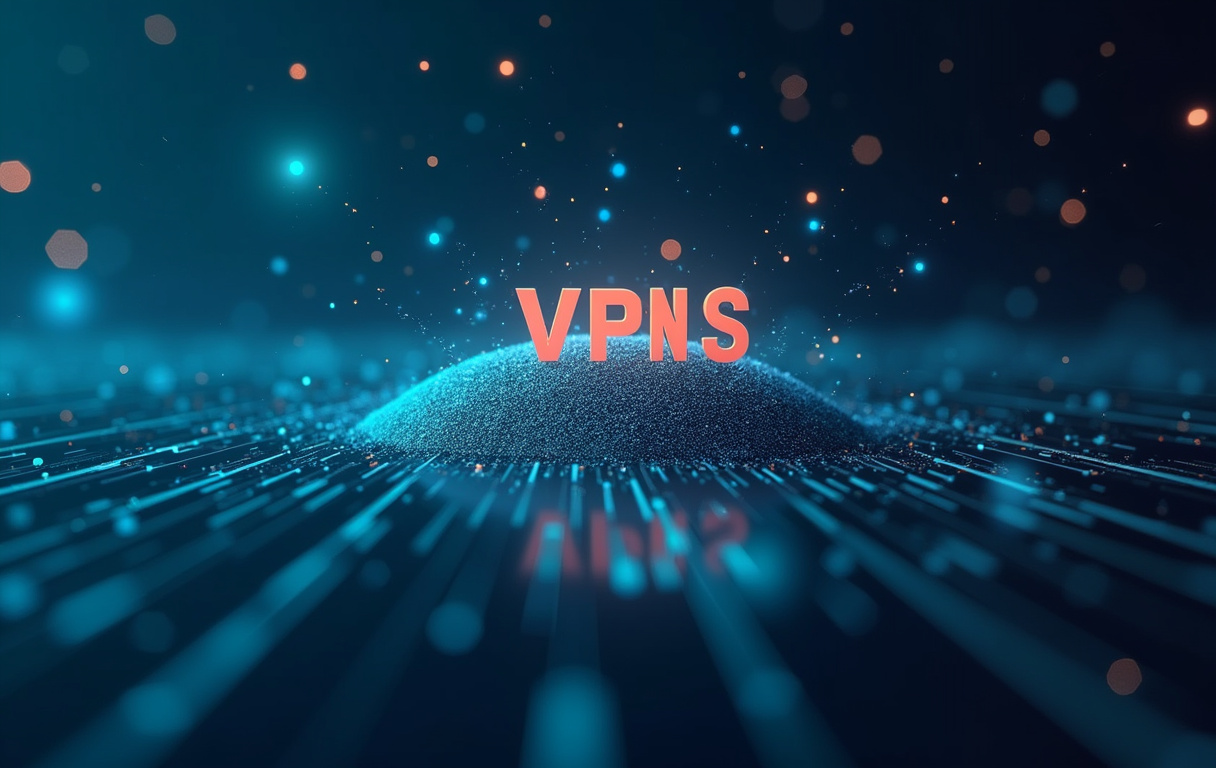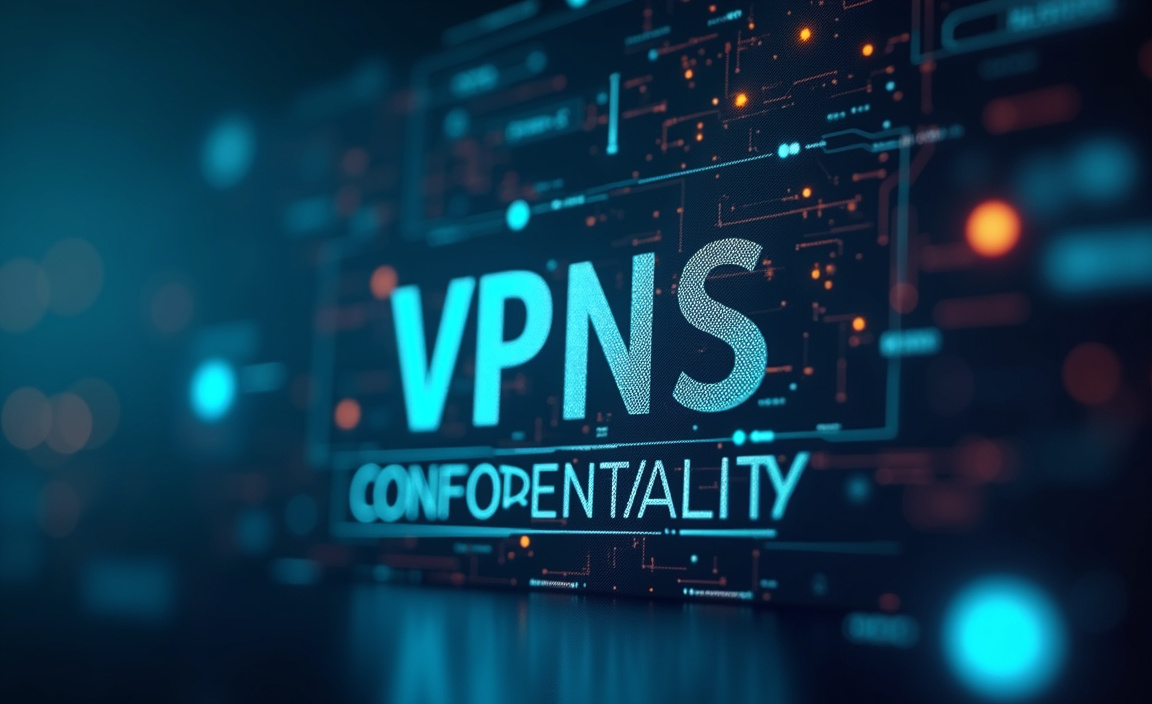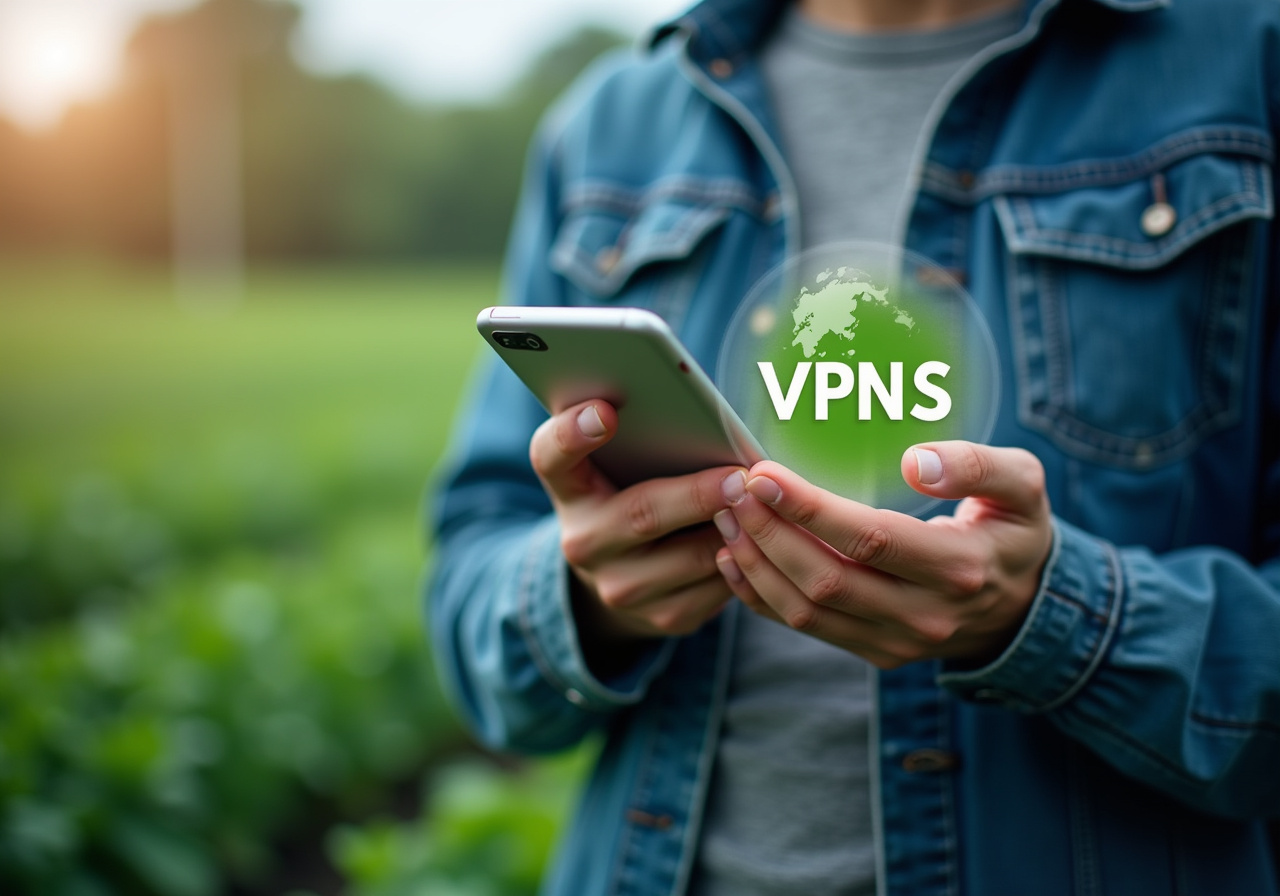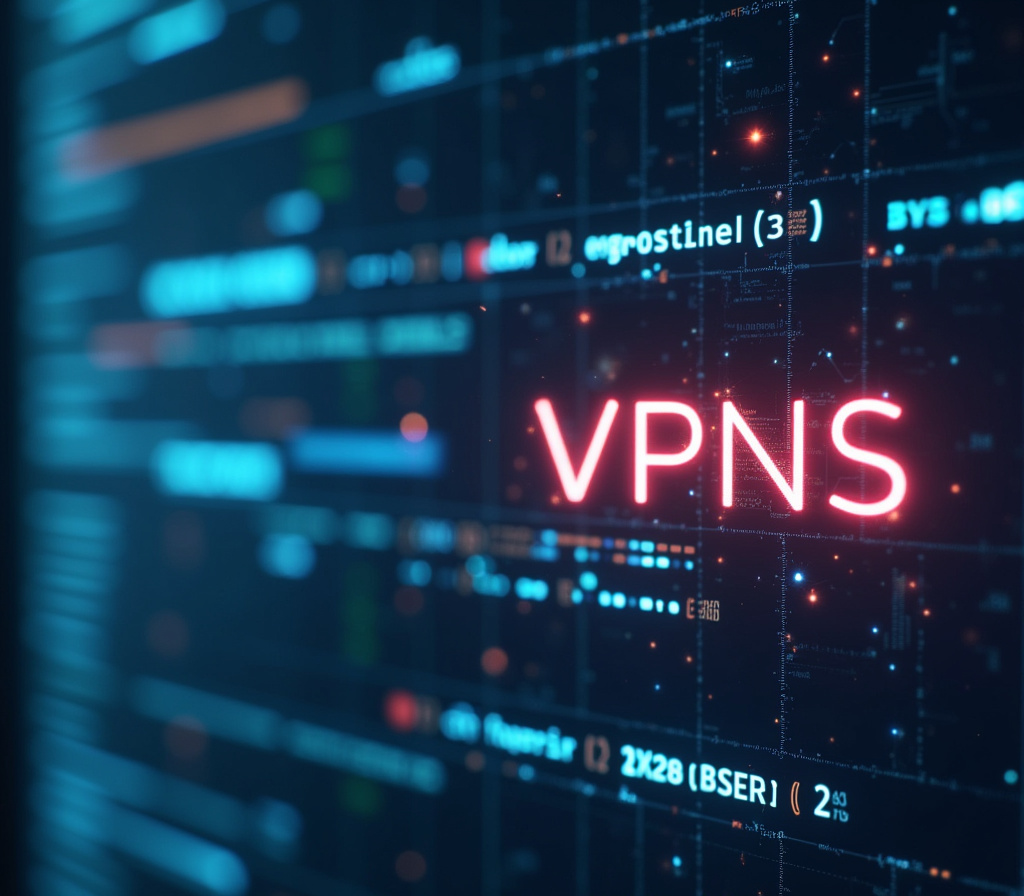VPNs for Remote Scientific Research: Protecting Digital Experiments

Table of Contents
Securing Scientific Discovery: The Role of VPNs in Remote Research
In an era propelled by rapid technological evolution, scientific research has broken free from the traditional laboratory setting, embracing the vast and dynamic landscape of the digital realm. This paradigm shift has fostered unprecedented collaborative opportunities and fueled groundbreaking discoveries. However, this transition to remote scientific research introduces a range of complexities, particularly concerning data security and integrity.
Scientific investigations now heavily rely on sensitive data, intricate digital experiments, and the seamless exchange of information among researchers across geographical boundaries. Safeguarding this digital ecosystem is paramount, and Virtual Private Networks (VPNs) have emerged as an indispensable tool for ensuring the security and reliability of remote scientific research endeavors. By establishing encrypted connections and masking IP addresses, VPNs provide a secure tunnel for data transmission, shielding sensitive information from unauthorized access and potential cyber threats.
This foundational layer of security is critical for maintaining the integrity of scientific research, preventing data breaches, and fostering an environment of trust and collaboration among researchers. The reliance on digital tools and platforms in modern science presents a significant challenge: protecting research data from increasingly sophisticated cyber threats. Researchers are constantly exchanging sensitive data, running complex simulations on remote servers, and accessing proprietary databases – all activities that are potentially vulnerable to interception, manipulation, or theft.
Consider, for example, a research team studying infectious diseases. Their work might involve collecting patient data, analyzing genomic sequences, and developing predictive models. If this data is compromised, it could have devastating consequences, ranging from the exposure of confidential patient information to the sabotage of critical research efforts.
Similarly, a research project focused on developing new materials might involve sharing proprietary algorithms and experimental data with collaborators across multiple institutions. If this information falls into the wrong hands, it could be used to gain a competitive advantage or to create counterfeit products. The use of a 'scientific research VPN' is no longer a luxury but a fundamental requirement for any research institution or individual scientist engaged in remote digital experiments.
VPNs offer a robust solution to these challenges by providing a secure and encrypted connection between a researcher's device and the internet. This connection essentially creates a private tunnel, shielding data from prying eyes as it travels across public networks. The encryption process scrambles the data into an unreadable format, making it virtually impossible for unauthorized parties to intercept and decipher.
This level of security is essential for protecting sensitive research data from hackers, government agencies, and other malicious actors. The potential consequences of neglecting 'digital experiment security' are far-reaching, ranging from the loss of valuable data and intellectual property to the erosion of public trust in scientific findings. Beyond encryption, VPNs also mask the user's IP address, which is a unique identifier that can be used to track their online activity and location.
By routing internet traffic through a VPN server, the user's true IP address is hidden, making it difficult to trace their online activities back to them. This is particularly important for researchers who may be working on controversial or sensitive topics, as it can protect them from surveillance and harassment. Therefore, a comprehensive understanding of VPN technology and its application in scientific research is essential for protecting the 'data integrity' of digital investigations and facilitating secure 'collaboration' among researchers worldwide.
Furthermore, the deployment of a 'VPN for science' requires careful consideration of specific research needs, potential vulnerabilities, and the evolving landscape of cyber threats. This understanding is crucial to choose and configure a VPN that matches the security demands of complex scientific investigations. Ultimately, VPNs contribute to an environment of trust and security within the scientific community.
Researchers can confidently share data, collaborate on projects, and access online resources knowing that their work is protected from unauthorized access and interference. This level of assurance is essential for fostering innovation and driving scientific progress. This article delves into the multifaceted role of VPNs in safeguarding remote scientific research, exploring their capabilities in enhancing security, preserving data integrity, and enabling seamless collaboration among researchers across the globe.
It examines the technical aspects of VPNs, discusses best practices for implementation, and highlights the benefits of using VPNs to protect digital experiments.
Enhancing Project Data Protection with VPNs
VPNs provide a crucial shield against a myriad of cybersecurity threats that can compromise the integrity of scientific research data. Researchers often work with highly sensitive information, including patient data, proprietary algorithms, and confidential research findings. Without adequate security measures, this data is vulnerable to interception, manipulation, and theft.
A VPN encrypts all data transmitted over the internet, converting readable information into an indecipherable code that can only be decrypted by authorized recipients. This encryption process essentially creates a secure tunnel, preventing eavesdropping by hackers, government agencies, or other malicious actors. The stronger the encryption protocol employed by the VPN, the more secure the data transmission becomes, safeguarding against even the most sophisticated decryption attempts.
This enhanced level of security is particularly vital when researchers are transmitting large datasets or sharing complex models, scenarios that could lead to significant data breaches if left unprotected. In addition to encryption, VPNs also mask the user's IP address, which is a unique identifier that can be used to track their online activity and location. By routing internet traffic through a VPN server, the user's true IP address is hidden, making it difficult for unauthorized parties to trace their online activities back to them.
This is particularly important for researchers who may be working on controversial or sensitive topics, as it can protect them from surveillance and harassment. Imagine a climate scientist whose work challenges prevailing political or economic narratives. By using a VPN, they can protect themselves from potential scrutiny or intimidation, allowing them to conduct their research without fear of reprisal.
Or consider a medical researcher investigating the efficacy of a new drug. By masking their IP address, they can prevent competitors from gaining insights into their research progress or potential breakthroughs, protecting their intellectual property and competitive advantage. Scientific research VPNs can also help to prevent man-in-the-middle attacks, where hackers intercept communications between two parties and tamper with the data being exchanged.
This is a critical area that requires vigilance. By encrypting all traffic and authenticating the VPN server, a VPN ensures that only legitimate users can access the research data. This is especially critical for collaborative research projects where multiple researchers are sharing data and insights.
Without this safeguard, malicious actors could inject false data, alter experimental parameters, or even steal confidential research findings, potentially undermining the credibility of the entire project. VPNs also provide a layer of authentication. The user and server must mutually authenticate with each other before any data will pass between both ends.
This ensures that the data gets passed between known and trusted sources and no one else. Moreover, VPNs can be used to bypass geographical restrictions and access research resources that may be restricted to certain regions. This can be particularly useful for researchers who are traveling or working remotely and need to access data or software that is only available in their home country.
For instance, scientific journals, databases, and specialized simulation software may have licensing agreements that limit their use to specific geographical areas. A VPN can circumvent these restrictions by making it appear as if the user is connecting from a permitted location. This expanded access is not just about convenience; it can also enable researchers to participate in global scientific collaborations, access critical resources, and stay at the forefront of their field.
The ability to appear in another geographic location can also offer further security if the researcher has reason not to be associated to their true location. The benefits of using a VPN extend beyond merely hiding data. They also bolster the level of trust between collaborators working remotely, knowing that data will not be compromised during transfer.
This facilitates more openness and transparency during the research process, which in turn can lead to more creative insights and discoveries. VPNs serve as a foundation for ensuring that remote scientific inquiries are conducted under the utmost security and protection. It’s an investment into a future where the data is safe and the results are reliable.
Researchers can share information and results without the fear of compromise.
Mitigating Cyber Threats
Data integrity is the cornerstone of credible scientific research. The reliability and validity of research findings hinge on the assurance that the data collected, analyzed, and shared remains unaltered and accurate throughout the entire research lifecycle. A single instance of data corruption or manipulation can have profound consequences, potentially invalidating research results, jeopardizing scientific reputations, and even leading to flawed conclusions with real-world implications.
Consider a clinical trial where patient data is altered, even slightly. The results could be skewed, leading to the approval of a dangerous drug or the rejection of a life-saving one. Or imagine a study on climate change where data is manipulated to downplay the severity of the problem.
Such interference can have a ripple effect in societal trust. VPNs play a vital role in safeguarding data integrity by providing a secure and reliable channel for data transmission and storage. By encrypting data in transit, VPNs prevent unauthorized parties from intercepting and tampering with research data.
This is particularly crucial when researchers are sharing sensitive data across public networks, such as Wi-Fi hotspots, which are notoriously vulnerable to security breaches. A seemingly harmless connection to public Wi-Fi at a conference, a coffee shop, or an airport can expose sensitive research data to hackers lurking on the same network. VPNs, therefore, transform these untrusted networks into secure extensions of the research environment.
The assurance that data has not been compromised during the first, crucial moments of transfer brings a degree of reliability impossible to get otherwise. In addition to encryption, VPNs can also provide data integrity checks, which ensure that data remains unaltered during transmission and storage. These checks involve calculating a checksum or hash value for each data packet, and then verifying that the checksum or hash value remains the same after the data has been transmitted or stored.
If the checksum or hash value changes, it indicates that the data has been corrupted or altered, and the VPN can alert the user to the potential problem. This proactive approach to data integrity monitoring allows researchers to quickly identify and address any potential issues, preventing the spread of corrupted data and minimizing the impact on research findings. These integrity checks are especially important for large data sets.
Furthermore, VPNs can be used to create secure backups of research data, ensuring that data can be recovered in the event of a data loss or disaster. By backing up data to a remote server through a VPN, researchers can protect their data from physical damage, theft, or cyberattacks. This provides an additional layer of security and ensures that research data remains accessible even in the face of unforeseen circumstances.
Imagine a university laboratory struck by a natural disaster, such as a fire or a flood. If the research data is only stored on local servers, it could be lost forever. However, if the data is backed up to a remote server through a VPN, it can be quickly and easily restored, minimizing the disruption to research efforts and preventing the loss of valuable scientific knowledge.
This redundancy offered by backing up protects against many different potential situations. The implementation of rigorous data integrity protocols, coupled with the secure transmission capabilities of VPNs, contributes significantly to the overall credibility and reliability of scientific research. It instills confidence among researchers, funding agencies, and the public that research findings are based on accurate and unaltered data.
This level of assurance is essential for advancing scientific knowledge and fostering trust in the research community. The costs of implementing these protocols, including VPNs, are justified by the trust gained. VPNs provide a crucial layer of safety to data as it is transferred between parties and kept in backups.
Overall, they become a critical part of ensuring trust and longevity to data.
VPNs for Services
Collaboration is central to modern scientific research, often involving teams of researchers dispersed across different institutions and geographical locations. Effective communication and data sharing are essential for fostering collaboration, but these activities also introduce potential security risks. Sharing research data, discussing preliminary findings, and coordinating experimental protocols all require secure channels to prevent unauthorized access and maintain confidentiality.
VPNs can provide a secure and reliable platform for collaboration by creating encrypted channels for communication and data sharing. These secure channels are important when discussing cutting edge work or intellectualy sensitive materials that need not fall into the wrong hands. Consider a research team working on a collaborative project to develop a new vaccine.
The team members may be located in different countries, each responsible for a specific aspect of the research. They need to securely share data on viral strains, antibody responses, and clinical trial results. Without a VPN, vulnerable communication, such as email, can be prone to interceptions.
By using a VPN, the research team can ensure that all communication and data sharing is encrypted and protected from unauthorized access ensuring confidentiality. VPNs facilitate secure file sharing, enabling researchers to exchange large datasets and sensitive documents without fear of interception or tampering. Researchers spend less time worrying about data security and more time focusing on their research.
VPNs are particularly useful for collaborative projects involving sensitive or proprietary data, such as intellectual property or patient information. By encrypting all communication and data sharing, VPNs can help to maintain the confidentiality of the project, protecting it from competitors or malicious actors. Secure file sharing helps contribute to team member’s general peace-of-mind knowing that the files being passed around are safe.
Moreover, VPNs can be used to create secure virtual workspaces, providing a dedicated environment for collaborative research activities. These secure workspaces can include shared file repositories, collaboration tools, and communication channels, all protected by VPN encryption. This creates a central hub for all research activities, ensuring that all data and communication remains secure and confidential.
Within each working group, there can be different security levels for each team member depending on their relationship to the project to prevent leaks and risks. In addition to secure communication and data sharing, VPNs can also facilitate remote access to research resources, such as specialized software and high-performance computing facilities. This allows researchers to access the resources they need from anywhere in the world, without compromising security.
Remote access to resources is especially important as the trend towards working remote continues around the world. This flexibility empowers researchers to collaborate more effectively and accelerate the pace of discovery from all over the world. The ability to create secure channels for communication, data sharing, and remote access makes VPNs an invaluable tool for fostering collaboration in scientific research.
By providing a secure and reliable platform for collaboration, VPNs enable researchers to work together more effectively, accelerate the pace of discovery, and advance scientific knowledge. The advantages of using VPNs within scientific communities are overwhelmingly positive towards encouraging more secure collaboration. This more secure interaction can lead to faster research and discoveries.
The level of trust created from secure collaboration also benefits the team and its results.
The Future of VPNs in Subscription Services: Enhancing Security and Privacy
Selecting the appropriate VPN for scientific research requires careful consideration of several factors, including security protocols, data logging policies, server locations, and ease of use. Not all VPNs are created equal, and choosing the wrong one can leave research data vulnerable to security breaches. The best VPN for scientific research provides robust security, transparent data logging policies, a wide range of server locations, and an intuitive user interface.
Selecting the wrong VPN can also create a false sense of security. There are many free VPNs that lure users in with security assurances that end up being far less reliable than advertised leading to a false sense of security. Security protocols are paramount when choosing a VPN for scientific research.
Look for VPNs that use strong encryption protocols, such as OpenVPN or WireGuard, which are widely regarded as the most secure options available. These protocols use advanced encryption algorithms to protect data from eavesdropping and tampering. Avoid VPNs that use older or less secure protocols, such as PPTP or L2TP/IPsec, which have known vulnerabilities.
It's essential to ensure that the VPN provider is committed to using the latest security standards and regularly updating its software to address potential threats. Regularly updated and patched software is a key part of a strong security posture. Data logging policies are another critical factor to consider.
Some VPN providers log user activity, including browsing history, IP addresses, and connection times. This information could potentially be used to identify researchers and track their online activities, negating the benefits of using a VPN in the first place. Look for VPN providers that have a strict no-logs policy, meaning that they do not collect or store any user data.
A transparent and well-defined data logging policy is essential for ensuring that user privacy is protected. This information should be easily available in the VPN's terms of service, privacy policy, and other documentation. Server locations are important for several reasons.
A VPN with a wide range of server locations allows researchers to bypass geographical restrictions and access research resources that may be limited to certain regions. It also allows researchers to choose a server location that is close to their physical location, which can improve connection speeds and reduce latency. Furthermore, a VPN with multiple server locations offers redundancy, ensuring that researchers can maintain a secure connection even if one server is down.
It's not enough for a VPN to simply claim that they have a large number of servers; it's also important to verify where those servers are located and whether they are physically located in those regions or virtually located. Ease of use is important for ensuring that researchers can easily connect to the VPN and use its features without technical expertise. Look for VPNs that have intuitive user interfaces and provide clear instructions on how to install and configure the software.
A user-friendly VPN can save researchers time and effort, allowing them to focus on their research instead of struggling with technical issues. In many cases, having solid customer support can help greatly when ease of use suffers or when troubleshooting issues with the software. Good customer support is a vital component of a quality VPN provider that researchers should look for.
Ultimately, VPNs are essential. By implementing robust security measures and following best practices, researchers, research institutions, and individuals can protect digital experiments.
Stay Updated
Get the latest VPN news, tips, and exclusive deals to your inbox.




